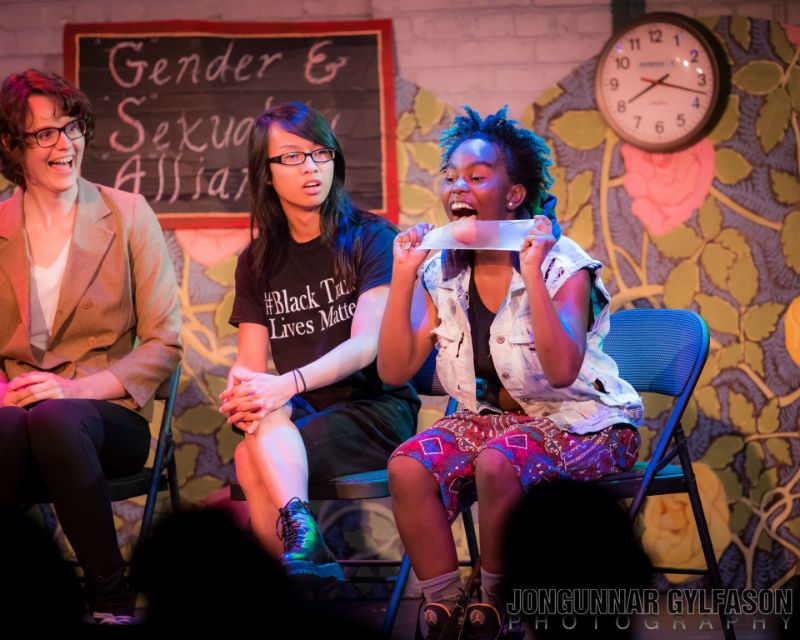Fighting Back, Creating Beauty
The lights go down and you are transported to the ” Queer Kids Guide to the Galaxy,” a video playing on stage, made by the story’s GSA for queer kids everywhere to learn survival tips for what to do, and what not to do, when growing up queer.
Survival Tip number one, don’t fall in love with you best straight friend!
(Boy we could all use that one).
The audience in the first few moments of the play is comfortable, laughing at the idea of falling in love with a friend with a different sexuality, and wondering how to address that. But laughter turns to introspection, and maybe even discomfort, as The Pursuit of Justice, written entirely by New Orleans’ LGBTQIA youth ensemble LOUD, weaves a story of cultural appropriation, issues of destroying black women’s dynamism, cis-gender, and white privilege.
“We look at structural inequity and privilege, learn about gender, sex, sexuality and sexual health and hold space for our members to delve into topics of their own interest,” says co-director Rebecca Mwase. “Through story-telling, poetry, song, dance, tableau, rap, drumming, drawing, and more, the LOUD ensemble expresses their need to connect, be understood and own their own bodies, stories and lives.”
The troupe is young, first forming only two years ago. In 2014, auditions were held and seven young people were selected for the ground breaking ensemble. In four short months they devised, wrote and produced their first full-length piece, Beyond Acceptance. The group opened to a sold out audience and sparked many meaningful conversations on sexual education and the struggles of queer, trans and straight youth trying to find common ground and understanding.
“Our mission is to build bridges to connection, to solidarity and to movement-building through sharing our work and engaging with audiences,” says Mwase. “Our creative work aims to not only support our queer young people’s lives but also to educate, instigate and move our wider community to center the stories and narratives of the ones most impacted by the specificity of living a queer life.”
LOUD is especially recognized because it uses theater and story-telling to invite young people into their own self-actualization. So much of young people’s lives are controlled–from home to school, their environments are tightly policed and their ability to freely express their identities, opinions and thoughts is hampered.
“We try to create a space outside of those dimensions that is open to their freedom of movement intellectually, creatively, physically, psychically and soulfully and this attempt shows in our work,” Mwase says.
Check out more info about LOUD’s guest workshops, field trips and youth performance opportunities at http://www.loudnola.org/
